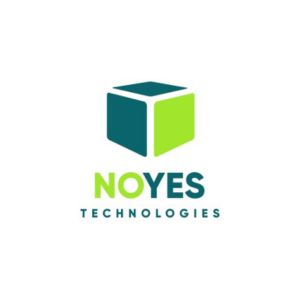
The resurgence in space exploration marks a transformative era driven by technological breakthroughs, private sector innovation, and renewed global interest. Unlike the Cold War-era space race, today’s efforts are fueled by advancements like reusable rockets and miniaturized satellites, which have drastically reduced costs and made space more accessible.
Private companies such as SpaceX and Blue Origin are leading the charge, collaborating with agencies like NASA to push boundaries in lunar exploration, satellite deployment, and even space tourism. This renaissance is not just about scientific discovery; it carries geopolitical significance, fostering international collaboration while also sparking competition for resources like lunar water and rare metals.
The Role of Government Partnerships
Advancements in Propulsion Technology
Advancements in Propulsion Technology: Highlight new propulsion systems being developed by companies like Relativity Space and their potential impact on deep space travel.
These engines, which are 3D-printed using advanced additive manufacturing techniques, deliver a combined thrust of over 2.1 million pounds, drastically reducing production time and costs compared to traditional methods. The use of liquid oxygen and methane as propellants not only enhances engine reliability but also positions these rockets for potential use in extraterrestrial environments like Mars, where such fuels could be produced locally.
Sustainability in Space Operations
The growing issue of space debris has made sustainability in space operations a critical focus, and companies like Astroscale are leading the charge with innovative solutions. Astroscale’s missions, such as ADRAS-J and COSMIC, are pioneering efforts to actively remove defunct satellites and other debris from Earth’s orbit. For example, the ADRAS-J mission, in collaboration with JAXA, has successfully demonstrated proximity operations by approaching and characterizing a large rocket stage left in orbit since 2009.
This mission will eventually progress to capturing and deorbiting the debris, showcasing Astroscale’s advanced robotic capture and rendezvous technologies. Similarly, the COSMIC initiative aims to remove two inactive British satellites using cutting-edge debris detumbling capabilities, further advancing active debris removal (ADR) technology.
The Technological Renaissance in Space Exploration
Reusable Rockets
Reusable rockets have transformed the landscape of space travel, making it more cost-effective and sustainable. Companies like SpaceX have pioneered this technology with their Falcon 9 rocket, which can land back on Earth after delivering payloads to orbit. This innovative approach significantly reduces the costs associated with space launches, as entire rocket stages can be refurbished and reused multiple times.
The success of Falcon 9 has set a new standard in the industry, prompting other companies, such as Blue Origin with its New Shepard rocket, to develop similar capabilities. By rethinking traditional launch methods, reusable rockets not only lower the financial barriers to entry for space exploration but also minimize waste and environmental impact. As more players adopt this technology, the dream of regular and affordable access to space is becoming a reality, paving the way for a new era of exploration and innovation.
Miniaturized Satellites
Miniaturized satellites, often referred to as CubeSats or smallsats, are revolutionizing the way we access and utilize space. These compact, lightweight satellites can be built and launched at a fraction of the cost of traditional satellites, making space more accessible to universities, startups, and even developing nations. Companies like Planet Labs have harnessed this technology to deploy fleets of miniaturized satellites that provide high-resolution Earth imagery, enabling real-time monitoring of environmental changes and urban development.
The versatility of miniaturized satellites also allows for a wide range of applications, from scientific research and disaster response to telecommunications and Internet connectivity in remote areas. As advancements in miniaturization continue, these small but powerful satellites are poised to play a crucial role in expanding our understanding of the planet and enhancing global connectivity, ultimately democratizing access to space for a broader audience.
Sustainable Ecosystems
Creating sustainable ecosystems in space is essential for enabling long-term human presence beyond Earth, and recent advancements are making this vision a reality. Companies and research organizations are developing closed-loop life support systems that recycle air, water, and waste to sustain astronauts on extended missions.
NASA’s Environmental Control and Life Support System (ECLSS) aboard the International Space Station has demonstrated how oxygen can be generated from water and how carbon dioxide can be removed from the air, paving the way for similar systems on future lunar or Martian habitats.
Also experiments in growing food in space, such as cultivating crops in microgravity using hydroponic and aeroponic techniques, are addressing the challenge of providing fresh produce for long-term missions. These innovations not only reduce reliance on resupply missions from Earth but also lay the groundwork for self-sufficient colonies on other planets. By focusing on sustainable ecosystems, humanity is taking critical steps toward thriving in space while minimizing its environmental footprint.
Pioneers of Space Travel
The pioneers of space travel have reshaped our understanding of what is possible beyond our planet, driving innovation and inspiring generations. These companies are not just advancing technology; they are igniting public interest in space exploration and laying the groundwork for future missions that could take humanity to the Moon, Mars, and beyond. As these pioneers continue to push boundaries, they are turning the dream of space travel into an achievable reality for many.
13 Leading Companies Shaping the Future of Space Exploration
The resurgence of space exploration represents a thrilling chapter in human history, characterized by innovation, collaboration, and a shared vision for the future. As companies like SpaceX, Blue Origin, and others lead the way with groundbreaking technologies such as reusable rockets and miniaturized satellites, we are witnessing a transformation that makes space more accessible than ever before.
This new era not only promises to expand our understanding of the universe but also has the potential to inspire future generations to dream big. As we stand on the brink of interplanetary exploration, it is clear that the efforts of today will shape the possibilities of tomorrow, inviting all of humanity to participate in this extraordinary journey into the cosmos.

futureTEKnow
Editorial Team
futureTEKnow is a leading source for Technology, Startups, and Business News, spotlighting the most innovative companies and breakthrough trends in emerging tech sectors like Artificial Intelligence (AI), Robotics, and the Space Industry.
Discover the companies and startups shaping tomorrow — explore the future of technology today.
Most Popular
Trending Companies
Latest Articles

Cloud Data Migrations in the AI Era – Prepare Smart. Balance Risks. Thrive.
Cloud data migration is more than an IT move—it’s a business transformation. This article guides you through AI-driven strategies to

AI Didn’t Fail; Your Data Warehouse Did
After decades in IT project management and business analysis, one truth has stayed constant: when AI projects fail, it’s rarely

Generative Bionics: The Italian Humanoid Robotics Spin-Out Bringing Physical AI to the Factory Floor
Generative Bionics, an Italian spin-out from IIT, is building Physical AI–powered humanoid robots to tackle labor gaps and modernize industrial

OpenAI vs. Google AI, SpaceX & Blue Origin Race for Space Data Centers, Meta’s AI Pivot, and Robotics Breakthroughs
Stay ahead of AI and space tech wars: OpenAI vs Google AI, SpaceX and Blue Origin’s race for orbital data

10 AI-Driven Supply Chain Optimization Companies to Watch in 2026
This article explores 10 AI-driven supply chain optimization companies to watch in 2026, highlighting how their platforms improve forecasting, logistics,

AWS Frontier Agents: Autonomous AI Coders That Build, Secure, and Run Apps for Days Without Human Oversight
AWS frontier agents introduce a new era of autonomous AI coders that can build, secure, and run applications for days

How AI Is Transforming Lean Six Sigma: The New Era of Operational Excellence 2.0
Explore the cutting-edge ways AI is enhancing Lean Six Sigma, from real-time process insights to predictive controls, ushering in a

Top Supply Chain Challenges in 2025 — and How High-Performing Teams Use AI to Solve Them
Facing supply chain challenges in 2025? High-performing teams leverage AI for risk management, demand forecasting, supplier analytics, and end-to-end visibility

How to Build a High-Impact Supply Chain Center of Excellence (CoE):A Blueprint for Operational and Inventory Excellence in the Age of AI
Craft an AI-powered supply chain Center of Excellence that unifies control tower visibility, analytics, and inventory optimization into one strategic

The Future of Supply Chain Leadership: Why the Next Generation Will Engineer Intelligence, Not Just Manage It
Supply chain leadership is being redefined by AI, intelligent automation, and agentic decision-making, demanding leaders who can engineer end-to-end intelligence

How WisdomAI’s $50M funding round positions it to redefine AI analytics and business intelligence
WisdomAI has closed a $50M Series A led by Kleiner Perkins and Nvidia’s NVentures to turn fragmented enterprise data into

Saia Agrobotics Raises €10M to Make Greenhouse Farming Smarter with Robots
Dutch agri-tech startup Saia Agrobotics has raised €10M to expand its greenhouse automation system using AI-powered robots that make farming
futureTEKnow is focused on identifying and promoting creators, disruptors and innovators, and serving as a vital resource for those interested in the latest advancements in technology.
© 2026 All Rights Reserved.




















